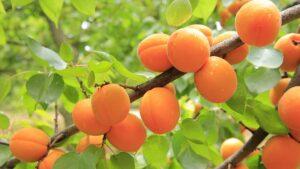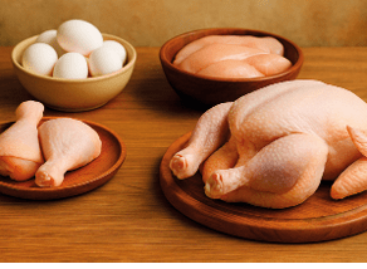A significant part of the apricot crop was taken away by the spring frost
Hungarian apricots will be a rare treasure this year, due to spring frosts, cooling during flowering, and large temperature fluctuations, only a quarter of the usual amount of produce can be sold on the market. According to the National Chamber of Agrarian Economy (NAK) and FruitVeB, the Hungarian Vegetable and Fruit Trade Association, due to the increasingly extreme weather caused by climate change, it is essential to comprehensively reorganize domestic fruit production, especially the production of early-flowering fruit species.

(Photo: Pixabay)
The spring cooling caused considerable damage to domestic apricot orchards. Due to the frosts at the time of flowering and the high temperature fluctuations, 70-80 percent fewer apricots were produced this year than the average of good vintages, depending on the region. According to the estimates of NAK and FruitVeB, this year the producers can harvest only 7-8 thousand tons of apricots. At the same time, the juicy, early-season fruit is very popular among consumers, and there is also a serious demand for apricots from the processing industry. According to experts, even double the average annual harvest could be sold. Apricots can also be an excellent choice for those who like a healthy lifestyle, as they have a high vitamin content: they are abundant in vitamins A, B and C, contain magnesium and potassium, and are also excellently hydrating, as they are 85 percent water.
Apricots are grown on about 5,000 hectares in Hungary, but the annual yield shows a large deviation: it has ranged from 5,000 to 35,000 tons in recent years
The main reason for this is that the apricot is a warm-loving fruit, which doesn’t really grow further north of us. That is why it is particularly sensitive to spring cooling, and it is also one of the earliest blooming fruit species. The most important apricot orchard is the county of Borsod-Abaúj-Zemplén (1117 hectares). There are also larger cultivation areas in the counties of Bács-Kiskun, Pest, Tolna, Fejér, Somogy and Heves. In a year with a good harvest, 70 percent of the domestic harvest is used by industry, 30 percent goes to the fresh market. The excellent properties of Hungarian apricots are also recognized abroad, and for many years it has been one of our horticultural export products that can be sold at the highest prices.
The spring frost has been a recurring problem in domestic fruit growing for years, in the last 6 years it has caused significant damage to stone fruit four times
The situation is not made easier by the fact that, according to the chamber’s survey, several Mediterranean varieties have been included in the cultivation of which the producers do not have adequate knowledge. According to NAK and FruitVeB’s point of view, the variety trials that were discontinued in the 2000s should be reinstated, the transfer of information related to varieties to the producers should be strengthened, and the cadastral system should be made operational in order to select the appropriate growing area, as with grapes. It would also be worthwhile to think about the proportion of early-, mid- and late-ripening varieties needed. A common problem is that early cultivation meets Mediterranean imports, which leads to a drop in prices.
A comprehensive reorganization of domestic fruit cultivation – and especially the cultivation of early-flowering fruit species – is essential
Related news
EU poultry meat rules are changing: the 12-week limit for “free-range” labeling is being relaxed during a pandemic
🎧 Hallgasd a cikket: Lejátszás Szünet Folytatás Leállítás Nyelv: Auto…
Read more >Not a turnaround, but consolidation: an agricultural outlook for 2026
🎧 Hallgasd a cikket: Lejátszás Szünet Folytatás Leállítás Nyelv: Auto…
Read more >NAK President: more than 120 thousand people signed the agricultural petition in one month
🎧 Hallgasd a cikket: Lejátszás Szünet Folytatás Leállítás Nyelv: Auto…
Read more >Related news
Festival buzz at the 60th anniversary EuroShop trade fair
🎧 Hallgasd a cikket: Lejátszás Szünet Folytatás Leállítás Nyelv: Auto…
Read more >








